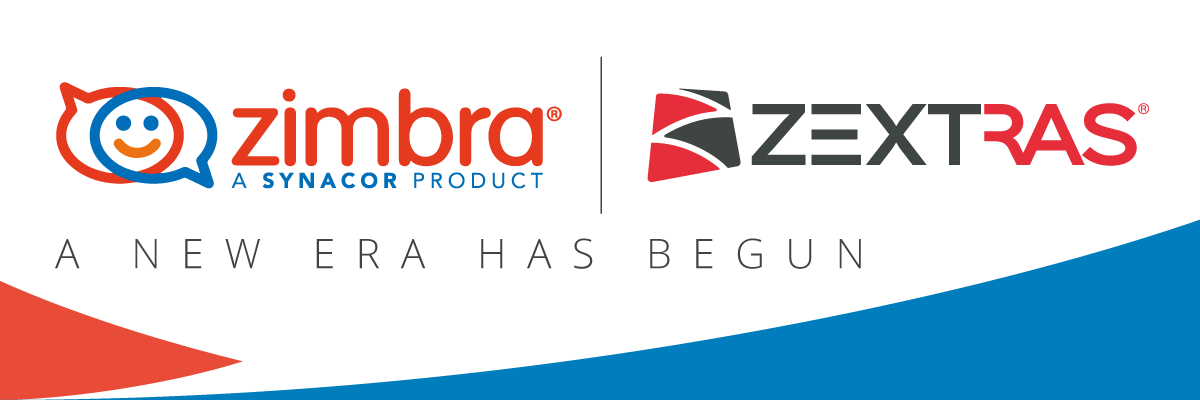Default calendar, fixes in LDAP and other innovations in Zimbra 8.8.11
December 18, the release of Zimbra 8.8.11. The new version of Zimbra does not contain any revolutionary changes, but it can offer users one important improvement and fix a few serious problems.

First of all, innovations in Zimbra 8.8.11 will certainly please those users who are forced to administer several calendars at once. Especially for such users in the new version of Zimbra appeared the setting “Default Calendar”, which allows you to select a calendar to which all subsequent events and meetings will be added later, unless the user specifies otherwise.
Thus, now a manager who has the ability to edit the daily logs of his subordinates, or an employee participating in several projects at the same time, can assign any of the calendars that they have the right to edit, as the “default calendar”. This innovation can quite seriously improve the efficiency of employees who are actively working with general and delegated calendars. You can assign a default calendar in the Zimbra web client settings, as well as using the command line's zimbraPrefDefaultCalendarId parameter .

The new version of Zimbra was codenamed Homi Bhabha in honor of a prominent scientist and one of the brightest representatives of the theory of postcolonialism.
A significant bug in Zimbra version 8.8.10 was that the LDAP filters created in this version of the system were not included in the indexing. The result was a significant reduction in query execution speed, and this was especially noticeable in cases with large LDAP databases. In version 8.8.11, this problem has been fixed and all filters created earlier are now perfectly indexed. In this regard, we recommend Zimbra users with large LDAP databases to upgrade as soon as possible.
Also in version 8.8.11, a problem was fixed concerning those Zimbra users who installed it on a multiserver infrastructure and use several LDAP servers in Master / Replica mode. As it turned out, in systems with a large number of Replica servers, problems with cached ACLs were possible, which in some cases could be out of sync. And this, in turn, could lead to the loss of a number of administrative rights.
From now on, when administrator rights are increased or decreased, the source information is extracted from the ACL on the main LDAP server, and all changes are also made directly to the ACL stored on the LDAP Master. Thus, the system manages to avoid the use of unreliable data and to ensure the guaranteed safety of the result when users change their access rights.
You can download the Zimbra Collaboration Suite Open-Source Edition 8.8.11 right now on the official Zimbra website .

First of all, innovations in Zimbra 8.8.11 will certainly please those users who are forced to administer several calendars at once. Especially for such users in the new version of Zimbra appeared the setting “Default Calendar”, which allows you to select a calendar to which all subsequent events and meetings will be added later, unless the user specifies otherwise.
Thus, now a manager who has the ability to edit the daily logs of his subordinates, or an employee participating in several projects at the same time, can assign any of the calendars that they have the right to edit, as the “default calendar”. This innovation can quite seriously improve the efficiency of employees who are actively working with general and delegated calendars. You can assign a default calendar in the Zimbra web client settings, as well as using the command line's zimbraPrefDefaultCalendarId parameter .

The new version of Zimbra was codenamed Homi Bhabha in honor of a prominent scientist and one of the brightest representatives of the theory of postcolonialism.
A significant bug in Zimbra version 8.8.10 was that the LDAP filters created in this version of the system were not included in the indexing. The result was a significant reduction in query execution speed, and this was especially noticeable in cases with large LDAP databases. In version 8.8.11, this problem has been fixed and all filters created earlier are now perfectly indexed. In this regard, we recommend Zimbra users with large LDAP databases to upgrade as soon as possible.
Also in version 8.8.11, a problem was fixed concerning those Zimbra users who installed it on a multiserver infrastructure and use several LDAP servers in Master / Replica mode. As it turned out, in systems with a large number of Replica servers, problems with cached ACLs were possible, which in some cases could be out of sync. And this, in turn, could lead to the loss of a number of administrative rights.
From now on, when administrator rights are increased or decreased, the source information is extracted from the ACL on the main LDAP server, and all changes are also made directly to the ACL stored on the LDAP Master. Thus, the system manages to avoid the use of unreliable data and to ensure the guaranteed safety of the result when users change their access rights.
You can download the Zimbra Collaboration Suite Open-Source Edition 8.8.11 right now on the official Zimbra website .
